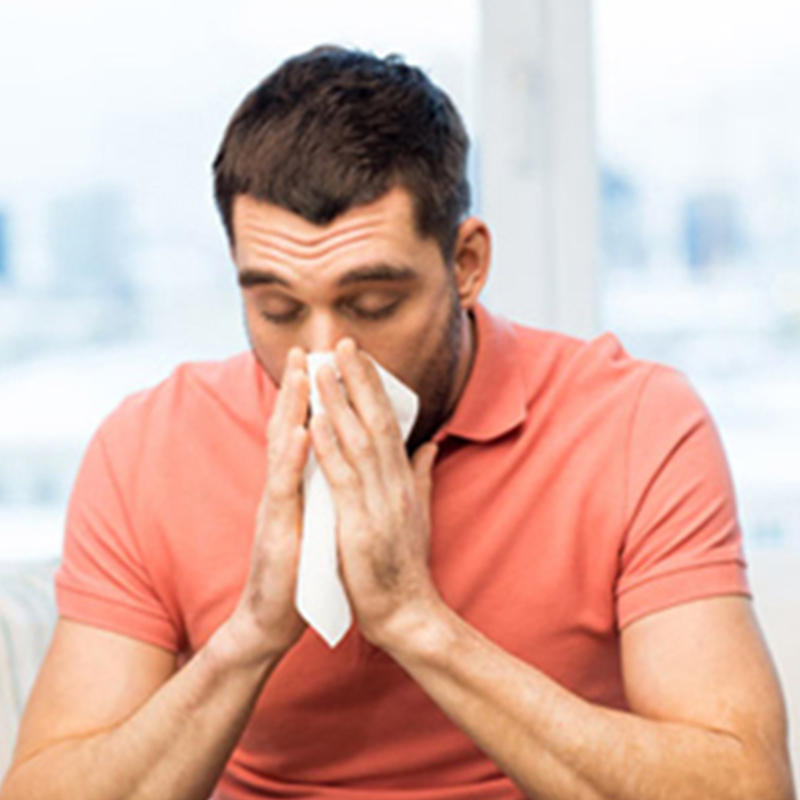
Allergy Rthinitis
Allergic rhinitis [AR], more commonly referred to as hay fever, is an inflammation of the nasal passages caused by allergic reaction to airborne substances.
It occurs when an allergen such as pollen dust or animal dander (particles of shed skin and hair) is inhaled by an individual with a sensitized immune system. In such individuals, the allergen triggers the production of the antibodyimmunoglobulin E (IgE), which binds to mast cells and basophils containing histamine.
There are two types of allergic rhinitis: seasonal and perennial.
- Seasonal Allergic Rhinitis occurs in the spring, summer, and early fall, when airborne plant pollens are at their highest levels.
- Perennial Allergic Rhinitis occurs all year and is usually caused by airborne pollutants in the home and other places.
A child can be affected by one or both types. Symptoms of seasonal Allergic Rhinitis are worst after being outdoors, while symptoms of perennial Allergic Rhinitis are worst after spending time indoors.
CAUSES
- Ragweed
- Sagebrush
- Lamb's-quarters
- Plantain
- Pigweed
- Dock/sorrel
- Tumbleweed
- Cigarette smoke
- Perfume
- Cosmetics
- Cleansers
- Copier chemicals
- Industrial chemicals
- Construction material gases
House mite body parts. All houses contain large numbers of house mites. These harmless insects feed on fibers, fur, and skin shed by the house's larger occupants. Their tiny body parts easily become airborne.
Animal dander. Animals constantly shed fur, skin flakes, and dried saliva.
Mold spores. Molds live in damp spots throughout the house, including basements, bathrooms, air ducts, air conditioners, refrigerator drains, damp windowsills, mattresses, and stuffed furniture.
SYMPTOMS
The characteristic symptoms of allergic rhinitis are: excess nasal secretion, itching, and nasal congestion and obstruction. The drip of mucus from the sinuses down the back of the throat, combined with increased sensitivity, can also lead to throat irritation and redness. Allergic Rhinitis usually also causes redness, itching, and watery eyes. Fatigue and headache are also common.
AVOID ALLERGENS BY
- Choosing fresh unprocessed food.
- Checking food labels for additives.
- Taking extra care like wearing gloves while using detergents and cleaners Clean your house, or vacuum frequently to get rid of dust mites, animal hair, etc.
- Remember that most allergens are in themselves harmless. It is your body's abnormal response and not the allergen that does the damage. So coming in contact with the offending substance will not hurt, as long as you can control your reaction to it.
- Inform the health care personnel about drugs to which you are allergic to In case of severe breathlessness, giddiness, and skin rash feeble pulse.